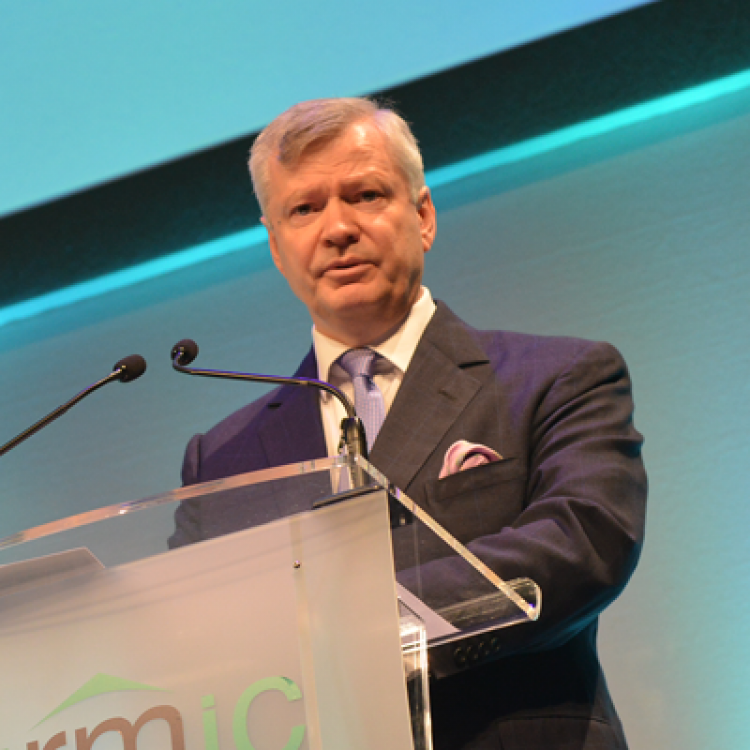Airmic CEO speaks on systemic risks to global supply chains

John Ludlow chaired the latest seminar in the Futureset Systemic Risk Masterclass Series at Lloyd’s, focused on vulnerabilities of global supply chains.
Airmic CEO John Ludlow chaired a Masterclass seminar on “Understanding the vulnerabilities of global supply chains to systemic risk”, held virtually on 9 March.
In his opening remarks Ludlow said: “The Coronavirus pandemic has laid bare the vulnerabilities of global supply chains in the face of systemic risk."
The seminar, part of the Lloyd’s Futureset programme, focused on systemic supply chain threats, the role of insurance in addressing them, and the impact of accelerating climate change on supply chains, and the broader risk landscape.
“Recently it has been widely appreciated how Covid-19 raised the risk ratings of about 80-90% of the other risks typically on a company’s risk register A major cyber event would likely do the same,” said Ludlow. “But Covid19 and cyber are not just connected risks, these are often systemic risks and the biggest long-term systemic risk of all is climate change.”
The opening remarks noted that on 24 February, US President Biden signed an executive order (EO) focused on reviewing systemic risks – including digital and cyber risks – within the supply chains of multiple high-priority industries from agriculture to pharmaceuticals.
“Climate change for example, is a mega trend which yields multiple trends and events of different types from water shortages, population migration, societal attitudes and needs, as well as the fires and floods people initially associate with it,” said Ludlow.
Only through understanding the risks and the trends can robust mitigation capabilities be developed, Airmic’s CEO explained. “The interchange between supply chains, society and climate change is an interesting one of complexity, unpredictability with systemic risk written all over it.” he said.
“So, while individual businesses can take steps to mitigate the risk of supply chain disruptions by shortening supply chains, improving visibility, and reducing reliance on key suppliers or regions prone to natural catastrophe or geopolitical issues, we know customers are also looking to the insurance industry to support them to increase resilience of their supply chains,” Ludlow continued.
The Masterclass seminar featured a panel of speakers from the Cambridge Centre for Risk Studies, Willis Towers Watson, EY, International SOS and PARIMA, Airmic’s sister organisation in Asia. Following the remarks by Airmic’s CEO, debate turned to the role of insurance in transferring systemic risks, including the need to develop new products and mechanisms.
“Supply chain cover does exist today, but it can often be complex to underwrite and costly to buy. Additionally, these products will need significant development to support supply chain resilience against future systemic risks,” Airmic’s CEO said.
“Having affordable and accessible product and service solutions will be key to instilling confidence in businesses when facing the future. As an industry we need to develop a wider range of solutions that can fulfil this growing need, but to do this they will need the data to understand the complex supply chain networks that exist and the risks to which they are exposed,” he continued.
“I see this as a great opportunity for our industry to work with all stakeholders, businesses, and governments around the world, to develop a greater level of certainty on supply chain resilience amid a world filled with challenges,” Ludlow added.
The dates and subjects of the Lloyd’s Futureset Masterclass series of seminars are listed below. The seminars are open to all risk and insurance professionals, combining technical content with expert discussion, and can either be watched live or downloaded to view after they have taken place.
- 10 Feb - Beyond the limit” – the role of industry and government partnerships in protecting against systemic risk
- 23 Feb - Lessons from the pioneers of terror insurance
- 9 March (John Ludlow - seminar chair) - Understanding the vulnerabilities of global supply chains to systemic risk
- 23 March (Julia Graham - seminar panellist) - Simplifying products and wordings to better protect customers
- 13 April (Tracey Skinner - seminar panellist) - Recognising risk – the systemic effects of internet and utility outages
- 27 April - The insurance response - How can the global industry help customers build resilience against systemic risks?
